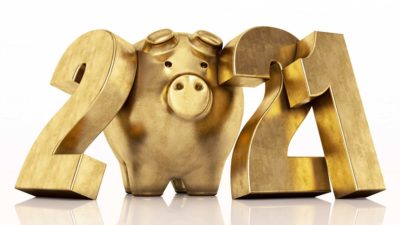What's that? Bill Shorten has announced a new policy on the refund of franking credits?
I hadn't noticed.
Okay, that's not true. I noticed. And, based on feedback on Twitter over the last week, many of you noticed, too.
If Shorten wanted to stir a hornet's nest, he got just that. Maybe it's clever politics. Maybe the focus groups told the pollsters this was a smart political strategy.
It sure as heck isn't good policy, in my view.
Before you fire off an email to either abuse me or suggest I be knighted, let me explain.
I'm going to start with three premises that I think most people can agree on:
- The tax system should be fair
- You shouldn't have to pay tax twice on dividend income; and
- The tax system, as it stands, is broken.
That last point seems to be Shorten's main thrust. And it's a battle cry taken up by many partisans:
"We have a problem, and I have a solution. If you don't like my solution, you're saying we don't have a problem."
To which I reply:
"We absolutely have a problem. But your solution is a poor one. There are better ways to skin this cat."
And before we go any further, please leave your political affiliations at the door. This week, on Twitter, I have bagged and praised Labor for different policies. I've done the same in the past to the Libs. If you can't put aside your team jersey and engage in a discussion of ideas, then there's not much for you in what follows.
But if you're interested in good policy, read on.
Bill Shorten's policy, as announced, goes something like this:
"We're happy for you to reduce your tax using franking credits, but we're not going to give you a refund."
There are a few problems with that approach:
First, it implies that if you pay tax, you're welcome to use the credits to reduce your tax burden to zero.
Second, those credits somehow magically are worthless once you hit zero, meaning that to me they're worth something, but to a retiree in a 0% tax bracket, they're worth nothing.
How can franking credits be worth different amounts to different people in different circumstances? Search me… I'm buggered if I know.
And third, and this is what's stirred up most heat among those who have gone into bat for the policy:
"I pay tax and my taxes shouldn't go to give a refund/handout to people who already have a lot of money."
Now, don't get me wrong. I think the current situation — regarding the ability to pay exactly zero tax on certain income in retirement that might be up to $80,000 — is crackers.
But, Shorten's policy doesn't fix that problem. Here's why:
Consider three people, all of whom have SMSFs in pension phase, and who — according to the current tax rules — pay 0% tax: Banking Betty, Rental Richard and Dividend Davina.
Banking Betty deposits $100,000, and earns $2,000 each year in interest. Betty doesn't pay any tax.
Rental Richard has a $100,000 property that pays him $2,000 each year in rent. Richard doesn't pay any tax.
Dividend Davina buys $100,000 worth of shares that earned a profit of $2,000. The company paid tax of $600, so Davina gets $1,400. Davina doesn't pay any tax.
See the difference here? Because Davina's investment is in the form of shares in a company, she gets less than the other two. Even though she's not supposed to pay any tax, the company paid tax, so she gets less.
Under current rules, she'd get the $600 back, delivering on the current government policy of a 0% tax rate, and equalising the return for each of those investors.
Bill Shorten, in effect, is penalising people for owning shares.
Now, let's address the elephant in the room. Yes, because the company has already paid tax on that $2,000, Davina does officially get a refund. And the optics of that are bad: it looks like somehow the taxpayer is subsidising Davina.
But it's all a question of cash flows and timing. The ATO just gives Davina back the money the company paid in tax.
And remember, a company is just a legal structure to organise your ownership interest in an asset. Shares in a company aren't all that different in effect to accounts at a bank. Your bank account is evidence that you have a claim to a share of that bank's assets, even if you don't know specifically which notes you deposited.
Imagine a scenario under which Banking Betty's bank withholds 30% of her interest and sends it to the government as tax. And where Rental Richard's property manager is obligated to send 30% of his rental income to the ATO.
Both of these investors would have to fill out a tax return and the ATO would send them a refund — because tax was paid on their income, even though the tax rate should have been 0%.
Would Bill Shorten stop Betty and Richard getting their money back?
I doubt it.
But somehow, because Labor has (unfortunately, disingenuously) used extreme examples to make their point, and because they've dressed it up as a handout, they've mischaracterised the situation.
Somehow Dividend Davina is a fatcat living high on the hog, while Betty and Richard are perfectly entitled to pay no tax.
Essentially, because of the asset class they decide to invest in, our three protagonists are being treated differently.
Sound fair to you?
No, me neither.
Yes, the idea of a 'refund' for someone who has paid no tax feels, somehow, deeply wrong. But it's because tax was paid by the company, on behalf of a shareholder who shouldn't be paying tax, so the ATO is essentially just righting that wrong.
Still with me? Excellent!
Still fuming that well-off people pay no tax? Me too.
What? Didn't I just spend 984 words (don't waste time counting them. I checked) defending those people?
Well, yes. And no.
Here's where both parties are engaging in a phony war of words. And we're poorer for it.
Having an essentially uncapped income at a 0% tax rate is madness.
Yes, yes, it's not technically uncapped, for a host of reasons. So let's say $80,000 among friends.
You and I pay a decent slug of tax on an $80,000 income. And there's no reason that a well-off retiree should be able to draw a completely untaxed income of a similar amount, when they likely have a very decent asset base — say a home and a seven-figure superannuation balance.
It's simply not sustainable, especially as more boomers retire, to have that slice of the economic income pie remain completely untaxed.
But — and this is important — that doesn't mean we should simply ban franking credit refunds and assume that fixes the problem.
Let's go back to our alliterative actors, Betty, Richard and Davina.
If Betty was earning $80,000 in interest, should that be untaxed? Should Richard's $80,000 in rent be untouched by the taxman? Should Davina's $80,000 in dividends remain completely unscathed?
I don't think so. But again, it's not a question of the source of the income; it's the size.
Under Bill Shorten's plan, Davina would be worse off, but Betty and Richard laugh all the way to the bank. Does anyone, seriously, think that's a good basis for a tax plan?
I didn't think so.
Here's what I'd do: I'd have a generous tax-free threshold for income from superannuation, maybe $10,000 or so above the pension level. It's not unreasonable that you're allowed a little extra, given the sacrifice you made to save for your retirement.
But above that level, I'd implement a progressive tax scale not unlike the one that applies to regular income: The more you earn, the higher your marginal tax rate.
Simple, no?
Fair, yes?
That way, the tax code doesn't discriminate on the basis of the asset class. There are no free lunches. And the unsustainable tax situation that currently applies to Super is fixed.
So Bill Shorten, and Chris Bowen, it's time to admit defeat and go back to the drawing board. Feel free to use my template, above.
And Scott Morrison and Malcolm Turnbull, please stop with the emotive and negative language and grandstanding.
Politics should be a battle of ideas, not soundbites The best idea, well explained, should win, regardless of political party or ideological affiliation.
And, ladies and gentlemen of the Parliament, the Australian people will give you bonus points for explaining it clearly and for anything that reduces the complexity of our tax affairs, while ensuring fairness.
Indeed, Turnbull and Morrison's political forebear, John Howard spoke to the National Press Club in 2014 when he shared the stage with former Labor PM, Bob Hawke. At that event, according to the Sydney Morning Herald, Howard said
"We have sometimes lost the capacity to respect the ability of the Australian people to absorb a detailed argument. They will respond to an argument for change and reform [but] they want two requirements. They want to be satisfied it's in the national interest, because they have a deep sense of nationalism and patriotism. They also want to be satisfied it's fundamentally fair."
I'd like to think that's still true.
I agree with Bill Shorten's characterisation of the problem. I disagree completely with his solution.
I imagine I lost the most partisan readers — of both stripes — a few minutes ago. If you're still reading, thank you for engaging in a discussion of ideas.
I hope I've convinced some of you. Of those I haven't convinced, I hope I've at least done a decent job of addressing the issue, without bias, grandstanding or misdirection. Thanks for reading.
At the very least, I hope I've productively added to the conversation. It's the least each of us can do.
Fool on!








